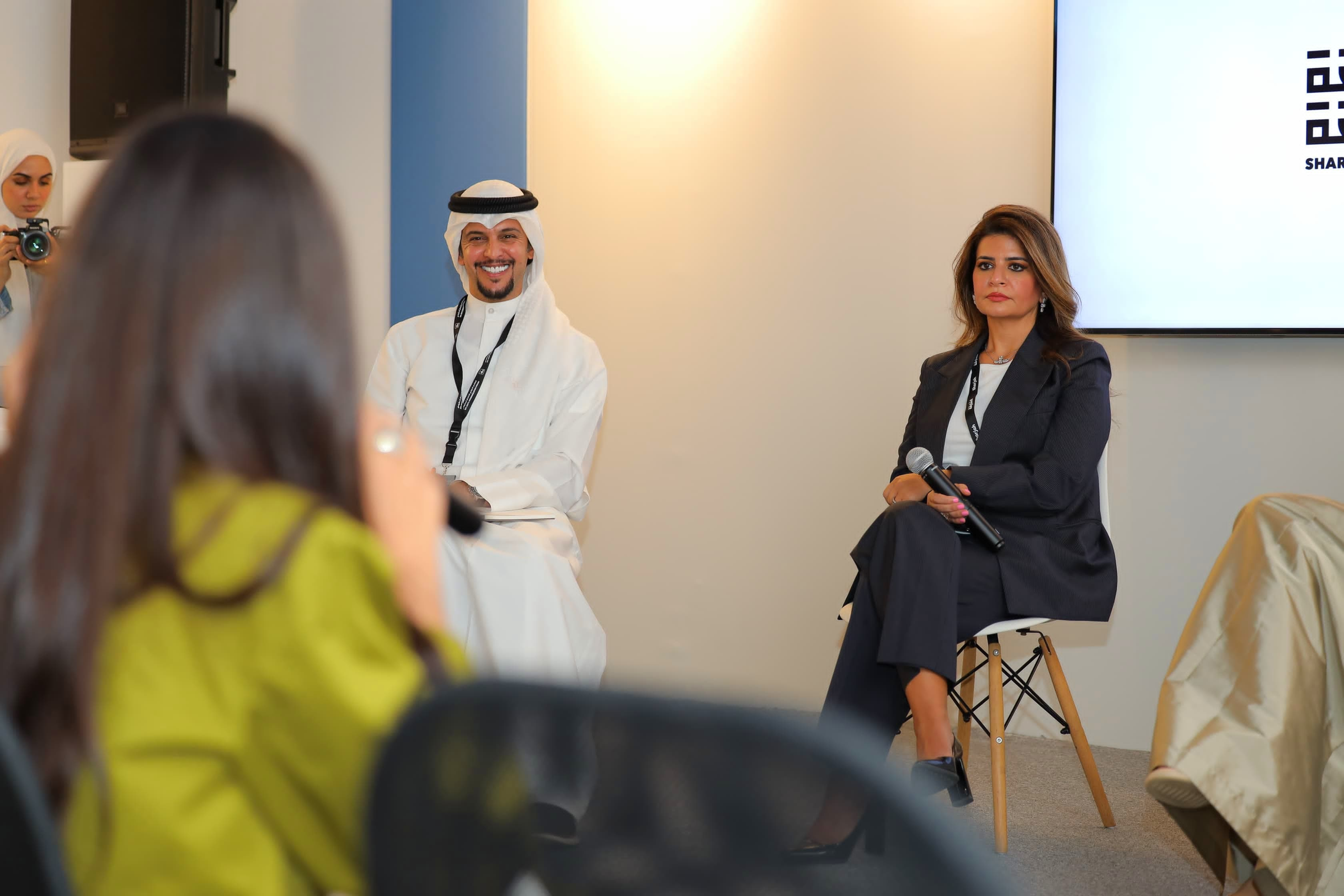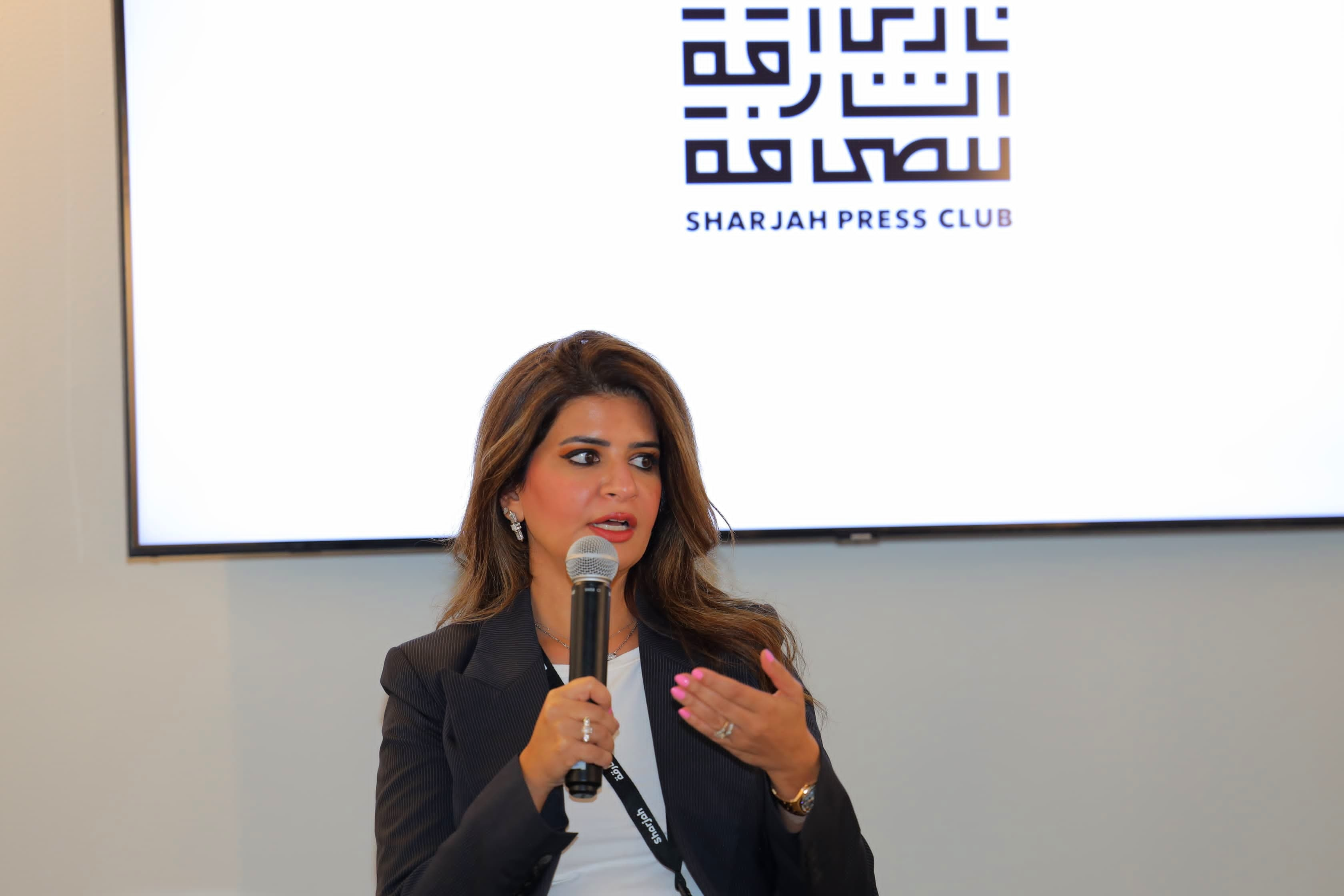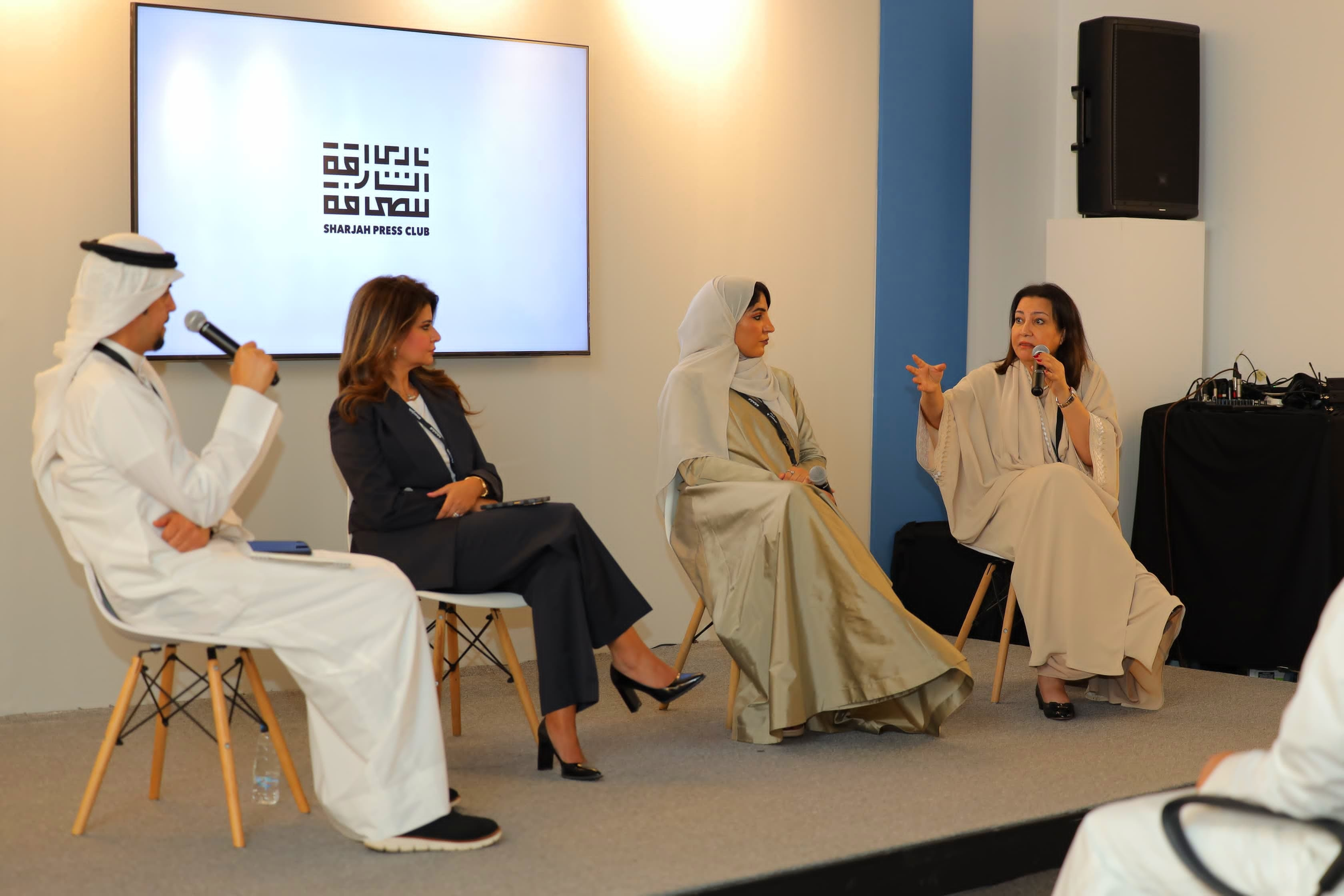Storytelling: Effective communication tool
SHARJAH: Director General of Kuwait News Agency (KUNA), Dr Fatima Al-Salem, stressed on Wednesday the importance of storytelling in government media as an effective communication tool between state agencies, institutions, and the public, and a media style that keeps pace with social media tools and technological development. This came during Dr Al-Salem’s participation in a dialogue session organized by the Sharjah Press Club entitled “Storytelling: Human Communication in the Age of Digitization” within the activities of the 13th International Government Communication Forum held in Sharjah for two days.
Dr Al-Salem said during the session, which was also attended by Saudi writer and editor-in-chief of Al-Riyadh newspaper Nawal Al-Jaber, Bahraini journalist and writer Susan Al-Shaer, and moderated by Kuwaiti media figure Dr Mohammad Al-Wasmi, that the importance of storytelling lies in providing information related to the institution in an attractive, simple, and visually dazzling manner, with the attachment of pictures, videos, charts, or illustrations to be embedded in the public’s memory faster and easier than data.
She added that storytelling provides a comprehensive explanation of government initiatives and projects in a more convincing way for the public and increases their interaction with government agencies and institutions, indicating that Kuwait News Agency (KUNA) has experience in storytelling through the ‘Professional Diaries’ program. She explained that storytelling addresses all segments of society and takes into account educational and cultural differences between individuals.
It also meets the needs of public opinion to know the news and activities that are related to government agencies and institutions and is likely to enhance citizens’ confidence in government media. Regarding the challenges facing governments in applying storytelling in digital media, Dr. Al-Salem stated that they lie in the lack of sufficient journalistic and media cadres to pump daily materials in this style and the lack of expertise, in addition to its novelty in government media and the reliance on the traditional method of publishing data and information.
Dr Al-Salem stressed that social media has proven the success of storytelling and has received wide acceptance, in addition to the success of marketing campaigns through this method, which is an effective means of influence and interaction. She said that technological development has made the media witness leaps outside the traditional formats of news and information dissemination through the integration of visual, audio, and print and has resulted in providing more widespread and influential content, stressing that spreading the government narrative using hybrid media will be correct, more effective, and beneficial.
For her part, Saudi writer and editor-in-chief of Al-Riyadh newspaper, Nawal Al-Jaber, stressed the importance of storytelling in enhancing communication, building identity, conveying the message effectively, and enhancing trust and interaction between the public and institutions. Al-Jaber said that introducing storytelling and making it a basic means of communication between the public and institutions is a community culture and a successful means of achieving more accomplishments. — KUNA
Bahraini media personality and writer, Susan Al-Shaer, explained that government communication strategies must be developed based on storytelling to achieve optimal communication between the two sides and keep pace with development. Al-Shaer indicated that government communication departments and their teams must be highly flexible and prepared through storytelling to enable governments to communicate effectively and efficiently with the public.
Earlier, the 13th edition of the International Government Communication Forum kicked off in Sharjah under the theme “Flexible Governments... Innovative Communication,” with a focus on the most prominent challenges and opportunities facing the people and the governments in the 21st century. - KUNA



















